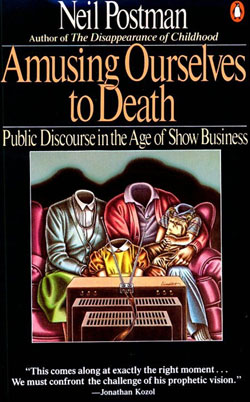Many pastors and teachers resort to analogies, allegories, and abstractions -- figures of speech -- when explaining the Bible and theology to children. Some of them are quite creatively-presented in puppet shows, "object lessons," Children’s sermons, skits, and multimedia. Such practices, however, deserve some scrutiny among classical Lutheran educators.
One red flag regarding the use of use of analogies to teach children comes from some of the heroes of progressive education themselves, e.g. Jean Piaget and Lawrence Kohlberg. While classical educators may look askance at the prescriptions of such child developmentalists, they need not entirely eschew the descriptions of their observations. So, for example, the demonstration that young children are not capable of comprehending the kind of analogies likely to be present in an object lesson, not to mention distinguishing between fact and fiction, reality and imagination, good and bad, silly and serious.
It is beyond the scope of this brief essay to relate the basic principles of concrete, formal, operational stages and moral development -- which can easily be found online. The point of this informal composition is to highlight some considerations about teaching theology by analogy -- and if someone wishes to address it more fully, formally and carefully than I have do here -- well and good.
In the realm of theology, if one asks, "Why did Jesus teach with parables?" many people are likely to repond with something to the effect that Jesus was using parables as illustrations to explain a thological point.
But if one rephrases the question thus: "What did Jesus Himself say was the reason that He told parables?" one might get a blank expression from the same respondents as they hear Luke 8:10, "To you it has been given to know the mysteries of the kingdom of God, but to the rest it is given in parables, that 'SEEING THEY MAY NOT SEE, AND HEARING THEY MAY NOT UNDERSTAND" [Isaiah 6:9-10; Matthew 13:13-14; Mark 4:11-12].
Additionally one might point out that if parables were intended to make things easier to understand, then why did Jesus' own disciples fail so frequently to understand what Jesus meant by His parables, asking Him to explain them? Indeed, why do they say, "See, now You are speaking plainly, and using no figure of speech!" (John 16:29; cf. v. 25)
Furthermore, when Jesus makes statements like "I am the Door" or "I am the Bread of Life," we must ask, "Is our Lord merely using a figure of speech to convey an esoteric truth?" If Jesus is only a metaphorical door or if He is only a symbolic bread of life, then where is the REAL door? Where is the REAL bread of life? I cannot live by metaphor. My faith cannot cling to a figure of speech. I need true door and an actual bread of life. I don't need an analogous Christ -- I need a real Savior.
The following quote (a secular acknowledgement of the limitations of metaphor attributed to the French philosopher Paul Valery), makes a good point: “The folly of mistaking a metaphor for a proof, a torrent of verbiage for a spring of capital truths, and oneself as an oracle, is inborn in us.”
And this essay regarding the doing of theology by analogy by Dr. James E. Smith, "The Bible Professor," also presents some arguments worthy of consideration: http://www.bibleprofessor.com/files/TheologybyAnalogy.pdf
An allegorical approach to Scripture is something which Luther held in contempt:
"For an allegory is like a beautiful harlot who fondles men in such a way that it is impossible for her not to be loved, especially by idle men who are free from a trial. Men of this kind think that they are in the middle of Paradise and on God’s lap whenever they indulge in such speculations. At first, allegories originated from stupid and idle monks. Finally they spread so widely that some men turned Ovid’s Metamorphoses into allegories. They made a laurel tree Mary and Apollo they made Christ. Although this is absurd, nevertheless, when it is set forth to youths who lack experience but are lovers and students of literature, it is so pleasing to them at the outset that they devote themselves completely to those interpretations. Consequently, I hate allegories. But if anyone wants to make use of them, let him see to it that he handles them with discretion." [On Genesis 30:9-11; AE 5:347-348].
Or again,
"But it was very difficult for me to break away from my habitual zeal for allegory; and yet I was aware that allegories were empty speculations and the froth, as it were, of the Holy Scriptures. It is the historical sense alone which supplies the true and sound doctrine. After this has been treated and correctly understood, then one may also employ allegories as an adornment and flowers to embellish or illuminate the account. The bare allegories, which stand in no relation to the account and do not illuminate it, should simply be disapproved as empty dreams. This is the kind which Origen and those who followed him employ. Where can it be proved from Scripture that Paradise denotes heaven, and that the trees of Paradise refer to the angels? These ideas have been thought up as something most absurd and altogether useless. Therefore let those who want to make use of allegories base them on the historical account itself. The historical account is like logic in that it teaches what is certainly true; the allegory, on the other hand, is like rhetoric in that it ought to illustrate the historical account but has no value at all for giving proof." [AE 1:231f]
By this post, I do not intend in any sense to throw out all analogies, metaphors, similies and other figures of speech the way that Karlstadt called for the effacing and destruction of ecclesiastical art in Luther's day. In fact, I encourage readers to take a look at Bullinger's monumental Figures of Speech Used in the Bible in print or online. The intent and hope of this essay is that all parents, teachers, and pastors would be conscientious regarding the limitations of analogies in communicating Law and Gospel, God's living and holy Word.










